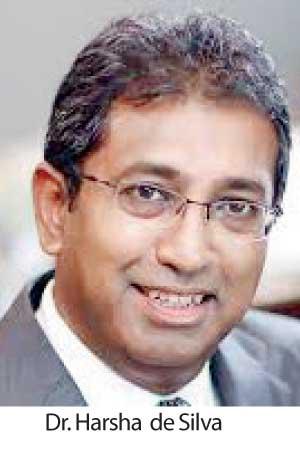Reply To:
Name - Reply Comment
- BOI officials come under spotlight for ignorance
The shockingly poor practice of blindly granting enormous tax concessions to certain foreign investments without knowing their true cost came to light this week when the top brass at the Board of Investment (BOI) was summoned before the Committee on Public Finance (COPF), a parliamentary oversight committee.
knowing their true cost came to light this week when the top brass at the Board of Investment (BOI) was summoned before the Committee on Public Finance (COPF), a parliamentary oversight committee.
The extremely poor state of affairs in granting tax concessions transpired when the BOI officials failed to justify why HCL Technologies, an India-based tech company, which already has commissioned operations in Sri Lanka, should be granted a slew of tax concessions spanning more than 10 years including an exemption from the income tax for 17 years, with final five at half the rate.
Opposition parliamentarian Dr. Harsha de Silva, who chairs the COPF grilled the officials on how such a tax holiday could be justified when the rest of the companies including exporters are facing 30 percent income tax rate under an International Monetary Fund-backed programme to raise revenues.
Despite repeated inquiries by Dr. de Silva, BOI officials failed to provide credible estimates of the total income tax forgone during the 17 years if the requested tax concessions were granted along with its corresponding benefits to the Sri Lankan economy.
Making an absolute mockery of themselves at Monday’s testimony, BOI officials claimed that neither the project company nor the BOI had made a cash flow forecast of the project to which they were seeking sweeping tax concessions.
Without a cash flow forecast, the officials cannot identify if the project is viable, and when the project will start to make net cash inflows and how much tax revenue the country will lose during the tax holiday.
Besides the unusually long income tax holiday, the project has also sought a slew of other tax concessions including a 5-year tax exemption for employees’ income, 12 years exemption from dividends, Value Added Tax, Port and Airport Development levy, Customs Duty and CESS on all project related item imports, according to what Dr. de Silva read during Committee hearing.
While the Committee did not oppose granting the requested concessions, Dr. de Silva made himself clear that as people’s representatives who will have to approve these extraordinarily large tax benefits, they must know what their true cost to the national coffers and if the benefits bring about by the project would outweigh such costs.
“I wrote to the Finance Ministry telling them not to send just papers without any analysis hereafter,” Dr. de Silva said, taking aim at past and future episodes of State enterprises, which come before the Committee unprepared.
“We cannot approve just papers without analysis because we can no longer take the blame from the people. We have failed the people,” he added adjourning the meeting to give time for the BOI officials to produce a reasonable cost benefit estimate to the Committee, without which the Committee could not proceed.
The sweeping tax concessions have been granted under the controversial Strategic Development Projects (SDP) Act, which offers broad discretionary powers to the Minister and thus could lead to potential corruption.
The said Act was suspended for a brief period concerning revenue based fiscal consolidation. But now there appears to be a bipartisan effort to repeal the Act.
As officials continued to fail to provide credible estimates during the testimony, Dr. de Silva pulled no punches to describe Monday’s hearing as a total embarrassment to all involved in the project as well as to the entire country, and told the officials that they must feel ashamed of themselves for attending the Committee with absolutely no clue of the amount of tax loss to the government from the very tax holiday they seek to get approval for.
The Committee, which held back its approval on Monday, gave their conditional approval to the tax concessions sought for by the BOI on Tuesday morning when officials managed to return with some estimates as the matter was up for debate and for approval on the same day in the parliament.
However, Dr. de Silva asked the Finance Ministry to review the rationale behind offering a 17-year tax holiday to a company which expects to earn billions of dollars, while the country is taxing everyone and everything to fix its budget.
HCL Technologies first entered Sri Lanka in September 2020 commissioning its Global Development Centre and the following year in August 2021, they entered into an agreement with Sri Lanka’s John Keells PLC to occupy 80 percent space in their 30-storey Grade A office building, which forms part of its iconic Cinnamon Life mixed development project.